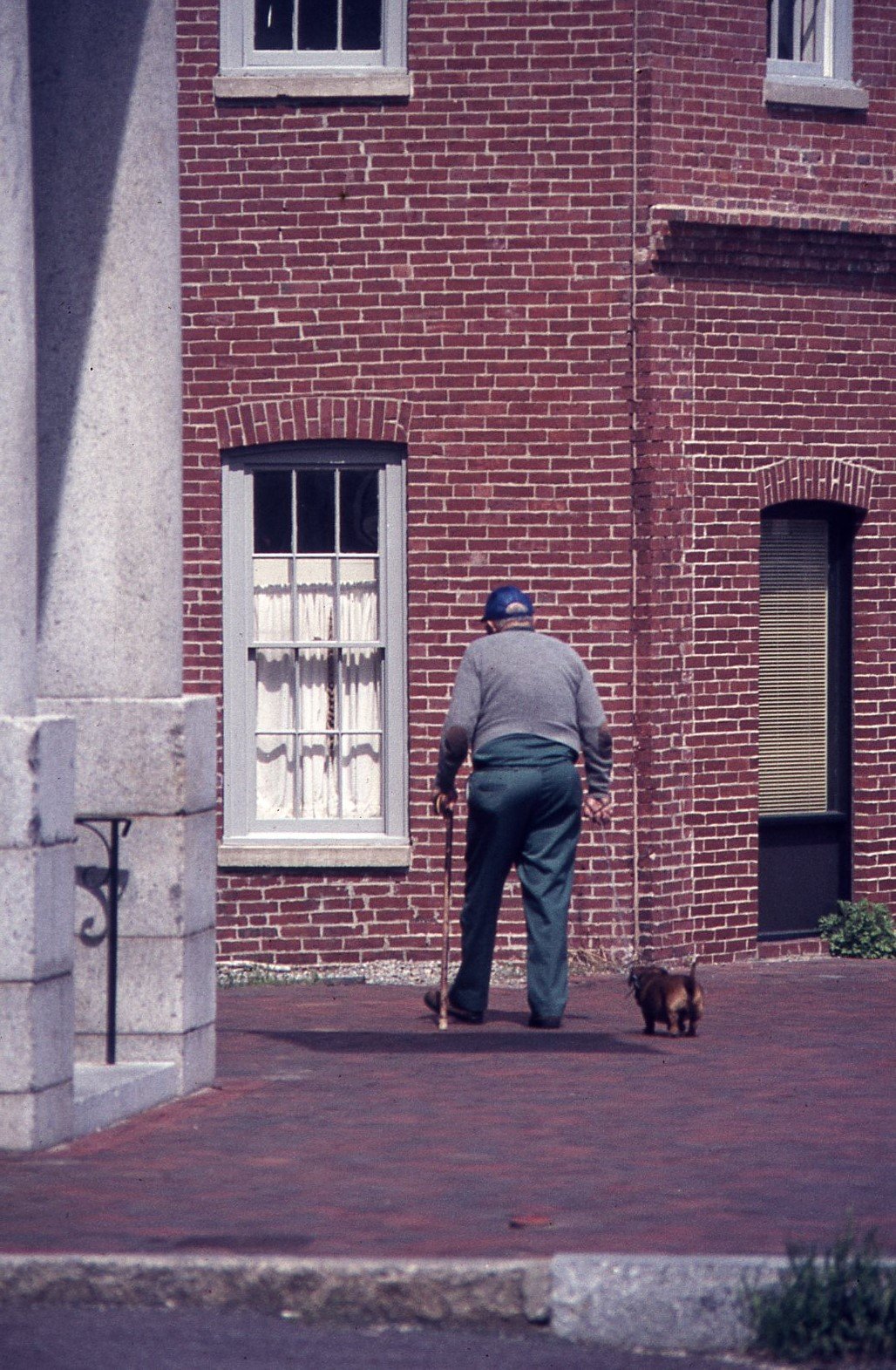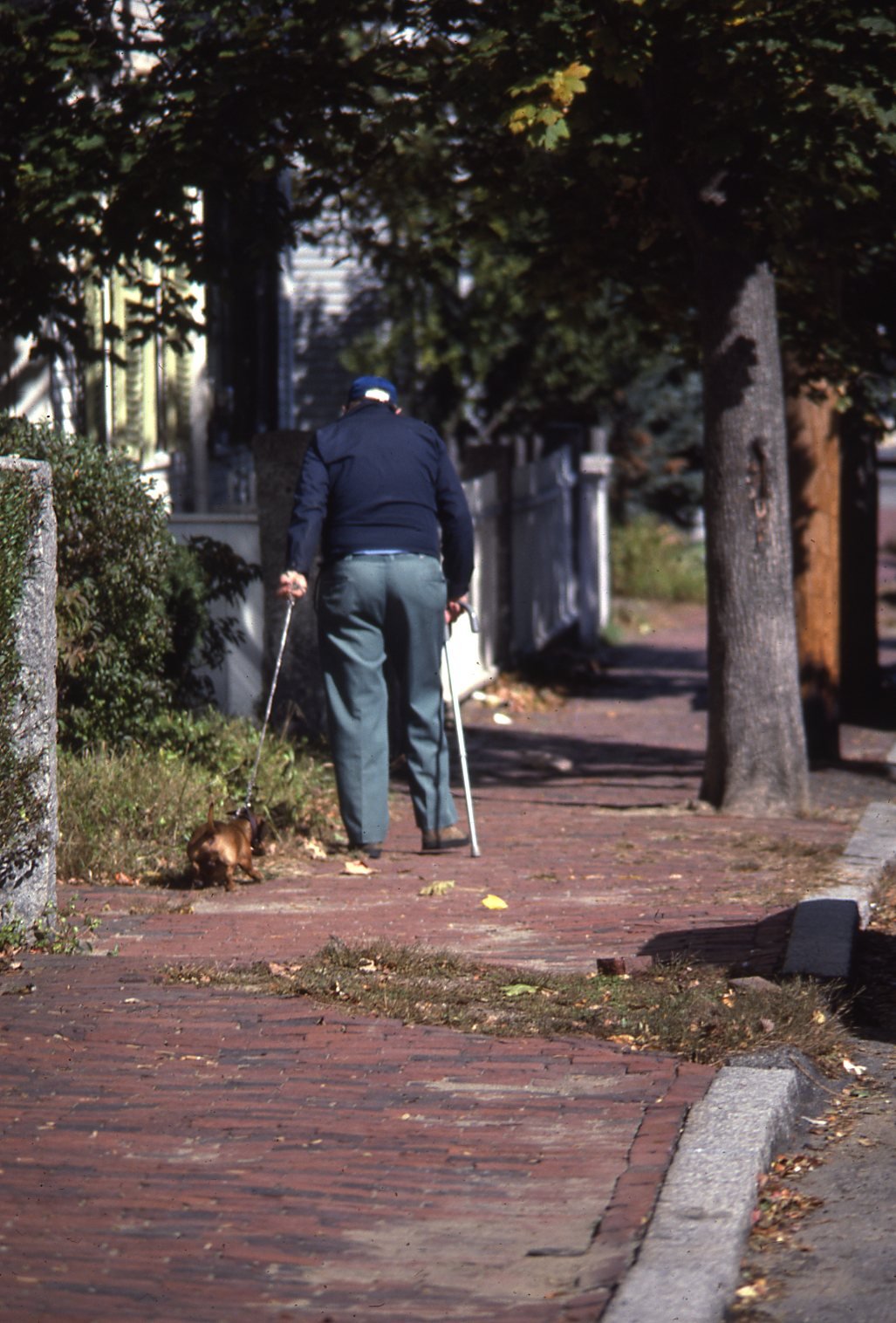Let's Call It October
by Bethany Groff Dorau, Executive Director
For the past nine years, on the last weekend in April, I belong to the Newburyport Literary Festival, body and soul. Ghlee Woodworth and I were brought onto the steering committee for this event in 2014, after local history was spotlighted and we were identified as two purveyors of such heady material. Also, between Ghlee’s boundless energy and my passable tech skills, we make a good team.
Ghlee and I, local historians and Lit Fest buddies at Newburyport City Hall.
And so, after months of meeting, spreadsheeting, cajoling, arranging, and preparing, on the Literary Festival weekend, with a limited degree of success, I run a projector at City Hall, or a Zoom webinar in my guest bedroom. I try to remember to hydrate, to speak slowly, to pronounce names correctly. And, blessed beyond measure, I am immersed in the world of writers and readers. We float through the rare air of downtown Newburyport, thinking big thoughts and seeing everything anew. At least, that is my experience.
I am brought to tears every year at least twice – in the best way. And I am given a gift – some idea or turn of phrase or interaction that remains with me. This year, our first year back together in person since the beginning of the pandemic, the first gift came quickly. It was Friday night, and we were at the opening event at the Firehouse. Our own Andre Dubus was on stage talking with his friend Peter Orner. Orner read a short story from his new book, a memory of his mother at the sink washing dishes as Nixon takes off in a helicopter.
“I don’t know what month of 1974 Nixon called it quits. I could check. It’s exhausting being able to check anything and everything. Let’s say it was spring, late spring, when Nixon resigned.”
I instinctively bristled a bit. “Let’s say…” is not a way to go about writing about something that really happened, says the historian in me. Nixon resigned in August, 1974. But, of course, that was not the point.
Peter Orner (above) and Andre Dubus opened the Newburyport Literary Festival this year; Peter spoke about his new book, "Still No Word From You."
Memory is slippery and subject to change as we remember the last time we remembered, an endless loop that, without a certain amount of anchorage, can spin off in all kinds of directions. But an essential element of memory is its changeability – its willingness to be informed by later experiences, to adapt to new information. Of course I want to know a true thing, but the true thing may be that the day Peter Orner watched his mother at the sink, it FELT like late spring.
And so, I did a little experiment with a memory of my own.
Let’s call it October. I am sitting at the kitchen table with my great-aunt Emily and my grandmother, who is in a wheelchair, and their brother, George, who is talking in gasping grunts about going to the hospital to have shrapnel removed. I ask Aunt Emily what that looks like. It’s terrible, she says. Like bits of metal and machine parts and things, always working themselves out of his legs. She says she once saw them remove a spring, part of a hand grenade that blew up behind him. He is missing a finger and most of one foot. He has a glass eye, but he has taken it out, and the hollow socket is red. His hair is shaggy, longer than any of his brothers, and he likes to look at me with his one milky eye, take off his cap, and thunk thunk on the metal plate on the back of his head with his knuckles. “Guam”, he says. He points to his eye socket. “Okinawa”. I say something and he cups his hand around his ear. “What?”, he shouts, then points to his deaf ear. “Midway,” he says, and laughs, his toothless mouth another socket in his wide, grey face. He is shifting his considerable weight in his chair, the sturdiest chair in the house, and over the years, his large, flat thumb has rubbed the end of the chair arm until a spoon has formed. He drinks, though there is no alcohol allowed in the Poore house, so he arrives drunk from his apartment in Newburyport. He dozes off, and he smells of mildew and cigarettes and liquor. I am scared of Uncle George, and I feel sorry for him, and I leave the room as soon as I can.
George Allen Poore’s military hospital record validates my memory of him.
Diagnosis: Wound(s), penetrating (point of entrance only: includes incised, puncture or stab wound) with nerve or artery involvement;
Location: Eyeball, generally;
Location: Metacarpal bones, generally;
Causative Agent: Artillery Shell, Fragments, Afoot or unspecified;
Diagnosis: Fracture, compound;
Diagnosis: Wound(s), penetrating (point of entrance only: includes incised, puncture or stab wound)
Type of Injury: Battle casualty
Medical Treatment: Enucleation with implantation; Amputation open, upper extremity, (includes amputation, unqualified, for traumatism)
Disposition: Discharged or Retired for Disability, Line of Duty, YesBut there was another gift that I was given because of the Newburyport Literary Festival.


Colleen and Frank Stiriti, whose new book Images of Life, Change & Beauty: Photographs, Poetry & Art - Selections from the works of Fran Dalton was the focus of one of the sessions at the festival, gave me these pictures of Uncle George, found in two envelopes marked “Mr. George Poore” in Fran’s distinctive hand. Uncle George, who I remember with such trepidation, was photographed with a palpable tenderness by Fran Dalton, whose experiences as a trans woman certainly informed her appreciation for outsiders and loners. She had endless empathy for the wounded.
There are almost no family photos with Uncle George in them after 1970. To many of us, he had become unlovely. But through Fran’s eye, through Colleen and Frank’s gift, a changed memory.
Let’s call it October, and a wounded veteran is walking his dog down State Street. Soon he will catch a ride to West Newbury to visit his sisters and try to befriend his great-niece…



